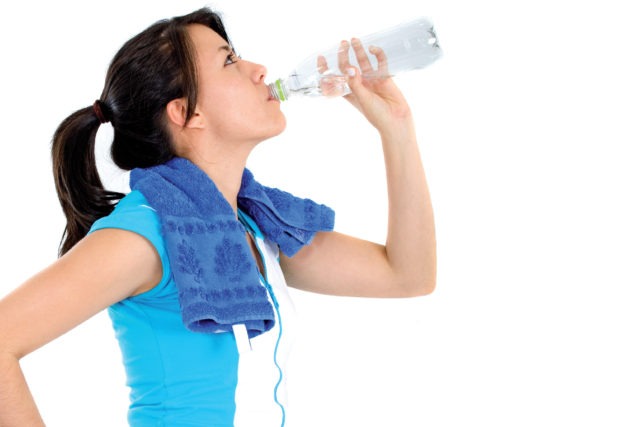Causes of UTI (Urinary Tract Infection)
The most common cause of infection is through Escherichia coli (E. coli), a bacterium that normally lives in the gastrointestinal tract. When it does happen, in many cases, the bacteria first travel to the urethra. When bacteria multiply, an infection can occur. An infection limited to the urethra is called urethritis. If bacteria move to the bladder and multiply, a bladder infection results, called cystitis. All women are susceptible to cystitis because of their anatomy – specifically, the close proximity of the urethra to the anus and the short distance from the urethral opening to the bladder. If the infection is not treated promptly, bacteria may then travel further up the ureters to multiply and infect the kidneys. A kidney infection is called pyelonephritis.
-
- Microorganisms called Chlamydia and Mycoplasma may also cause UTIs in both men and women, but these infections tend to remain limited to the urethra and reproductive system. These microorganisms can be sexually transmitted.
- Sexually transmitted diseases (STDs), such as herpes simplex virus and gonorrhea, are also possible causes of urethritis (infection in the urethra).
- Being pregnant also increases the risk of UTIs as the bladder is under a lot of pressure from the uterus and is more apt to catch an infection.
Symptoms of Urinary Tract Infection (UTI)
-
- Frequent urge to urinate, passing frequent but small amounts of urine.
- Burning, painful urination.
- Urine may look cloudy, red or milky, and may be strong smelling.
- Pain in the back and side of the ribs, nausea, vomiting, fever and chills.
- Pressure in the pelvic region, fullness in the rectum, lower abdominal discomfort.
Home remedies for UTI
-
- Water: Drink plenty of water to dilute your urine and to help flush out toxins/bacteria. Avoid coffee, alcohol, and soft drinks containing citrus juices and caffeine until your infection has cleared. They may irritate your bladder and tend to aggravate your frequent or urgent need to urinate.
- Baking Soda: Add one teaspoon of baking soda to a glass of water to help ease the infection. Drink it twice a day. The soda neutralizes the acidity in the urine, speeding up the recovery process.
- Pineapple: Pineapple contains an enzyme called Bromelain, which is found helpful in reducing infections. You may choose to eat the fruit, or drink fresh, homemade juice. It has been shown to lessen inflammation and reduce swelling, making this especially useful in the treatment of infections. These enzymes block the production of kinins that form during inflammation. Bromelain supplements may be as effective as some nonsteroidal anti-inflammatory (NSAID) medications (like ibuprofen), for reducing pain associated with infection and inflammation.
- Blueberries and cranberries: Blueberries and cranberries are from the same plant family and seem to have the same bacteria-inhibiting properties. You can drink sugar-free juice to help reduce the infection.
- Vitamin C: Vitamin C keeps the bladder healthy by acidifying the urine, essentially blocking the potentially harmful bacteria.
- Echinacea: Consume at least two capsules of Echinacea, three times a day, to fight the infection.
- Aloe: Aloe Vera is a cellular regenerator and has an antibacterial and anti-fungal effect on the body. You can take Aloe Vera juice, or products with Aloe Vera to counteract infection and promote healing.
- Yogurt: UTI is usually treated with antibiotics, which often cause diarrhea and vaginal yeast infections. Eating plain yogurt or taking Acidophilus in capsules, helps prevent diarrhea by replacing the normal bacteria in your intestines killed by the drugs. Research shows that the presence and dominance of Lactobacillus in the gut and vagina are associated with a reduced risk of UTIs. Apparently a higher level of “friendly” bacteria inhibits the growth of unwanted pathogenic bacteria like E. coli. You may also wash the vaginal area with diluted yogurt twice a day to administer the good bacteria Lactobacillus rhamnosus, which is a probiotic culture found in yogurt.
- Heat: Use a heating pad on your abdomen to minimize bladder pressure or discomfort. It also soothes the pain, improves blood circulation, and relaxes the pelvic and abdominal muscles.
- Self acupressure: Apply pressure to the point at the base of the wrist joint (just at the root of thumb) using the tip of the thumb, rubbing clockwise and counter clockwise, for 1-2 minutes intermittently. It helps in preventing UTI and also reduces the pain and burning associated with it. Do not activate the point in pregnancy.
 Indu Arora, Ayurveda and Yoga Therapist considers herself a student for lifetime. She has been sharing about Yoga philosophy, Yoga Therapy and Ayurveda since 1999. She is inspired by and taught under Kriya Yoga, Himalayan Yoga, Kashmir Shivaism and Sivananda Yoga lineages. She has studied both Yoga and Ayurveda in a traditional Guru paramapara setting. Her teaching style is rooted in empowering and inspiring students to awaken the inner Guru. Her core philosophy is, ‘Nothing has the greatest power to heal, but Self!” www.yogsadhna.com
Indu Arora, Ayurveda and Yoga Therapist considers herself a student for lifetime. She has been sharing about Yoga philosophy, Yoga Therapy and Ayurveda since 1999. She is inspired by and taught under Kriya Yoga, Himalayan Yoga, Kashmir Shivaism and Sivananda Yoga lineages. She has studied both Yoga and Ayurveda in a traditional Guru paramapara setting. Her teaching style is rooted in empowering and inspiring students to awaken the inner Guru. Her core philosophy is, ‘Nothing has the greatest power to heal, but Self!” www.yogsadhna.com




